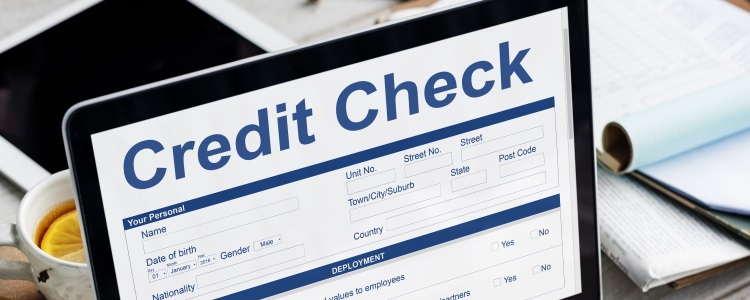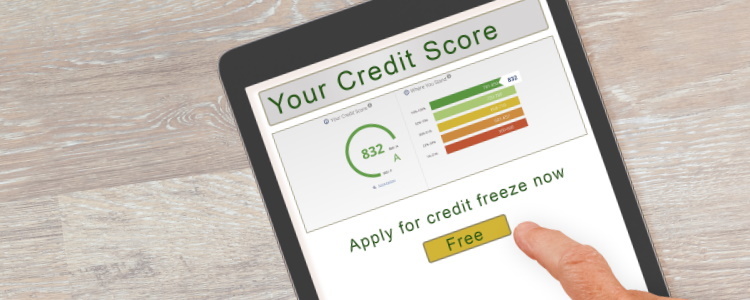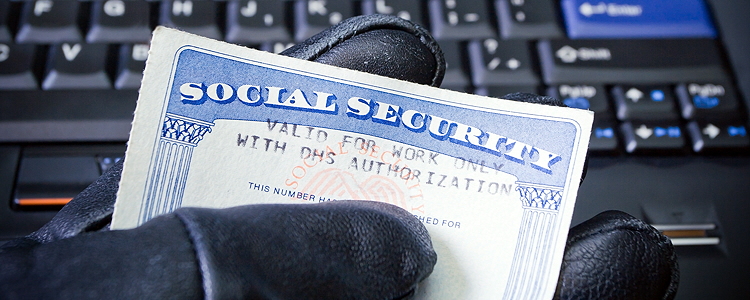If you remember the Equifax data breach back in 2017, you also may have read about consumers “freezing” their credit. What exactly does freezing your credit do and how do you go about doing it?
What Does Freezing Your Credit Do?
 When you freeze your credit, you keep scammers away because it prevents lenders from checking your credit reports. Once you freeze your credit, if a data thief attempts to apply for a new line of credit in your name, it gets rejected by the lender because they’re unable to access your credit information.
When you freeze your credit, you keep scammers away because it prevents lenders from checking your credit reports. Once you freeze your credit, if a data thief attempts to apply for a new line of credit in your name, it gets rejected by the lender because they’re unable to access your credit information.
It’s a great safety feature the credit bureaus offer, and a number of security experts recommend that you place a security freeze at all three of the major credit bureaus (Equifax, Experian, and TransUnion) if you have any reason to believe your information has been compromised. You can use your current credit accounts even if they’re frozen, but you won’t be able to open any new lines of credit. If you want to apply for new credit, you have to thaw it.
How to Freeze Your Credit
You need to visit the credit bureau(s) where you plan on freezing your report, and sign up for an account (Equifax and TransUnion) or a PIN (Experian) online. Once you have an account set up or your PIN number, you can choose to freeze, or unfreeze, an account. Note that you need to pay a small fee to freeze and unfreeze a credit account, as well as any additional charges associated. For example, to freeze and unfreeze with Equifax, the cost to freeze can be anywhere from $3 to $10 per freeze and unfreeze. If you plan on freezing more than one credit account, you could end up paying more than $10 to go through the freeze and unfreeze process.
Also, it’s important to remember that unfreezing can cause delays if you plan on taking on a new line of credit. Luckily with each credit bureau, you can set up a date to freeze and unfreeze a credit account. So, if you know you want to take out an auto loan within the next year, you can set up a tentative unfreezing date around the time you want to buy a car – saving you the stress of getting denied for financing due to your credit being frozen.
Credit Freeze vs. Credit Lock
Although the three credit bureaus offer a credit freeze, they also offer a credit lock to consumers. They may sound the same, but they aren’t. Unlike a credit freeze, a credit lock is more convenient in that it’s quicker to undo. You simply log into your account and hit a button to unlock your credit report, and your credit is ready to be accessed – whereas with a freeze you have to provide additional identifying information and it can take about 15 minutes before your credit account report is available.
The biggest drawback to multiple credit locks are the fees associated with them. Freezing and unfreezing doesn’t normally hit $100, where credit locks come with a monthly (around $19.99 for Experian) or yearly (around $239 for Experian) fee. Which means for all three credit bureaus, you could pay close to $500 a year to be able to lock and unlock your credit.
Finally, there’s the legal aspect to consider. Credit freezes are mandated and governed by state laws, where credit locks are determined by a contract between you and the credit bureau(s). Make sure you understand your state’s laws on credit freezing before you decide to freeze or lock your credit.
Getting Ready to Finance a Car?
If you recently thawed your credit report in anticipation of a car loan, but worry your credit is holding you back, don’t worry. At Auto Credit Express, we work with dealerships all around the country that are signed up with lenders that specialize in helping car buyers with imperfect credit. Fill out our free auto loan request form online, and we’ll get right to work matching you with a local dealer!



















